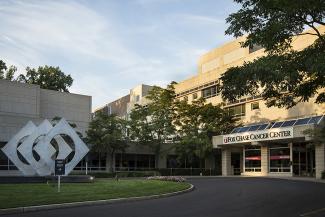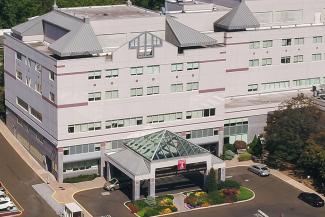Your surgeon determines which type of bladder reconstruction surgery is right for you based on your:
- Health status
- Type and extent of bladder cancer
- Specifics of the cystectomy performed
The Benefits of Robotic-Assisted Bladder Surgery
Temple Health offers a robotic-assisted, minimally invasive approach to the following bladder surgical procedures:
- Partial bladder removal
- Total bladder removal
- Pelvic lymphadenectomy
- Bladder reconstruction
Using robotic instruments, our surgeons have increased precision and range of motion, which is crucial when removing bladder cancer and preventing damage to surrounding tissue and nerves. In some cases, this level of precision can help preserve sexual function in men.
Compared to traditional open surgical procedures, the benefits of minimally invasive, robotic-assisted procedures include:
- Less pain
- Less blood loss and less need for a blood transfusion
- Less scarring internally and externally
- Quicker recovery time
Using the robot, we can complete lymph node dissections that match or surpass what the most experienced open surgeons are able to offer. If your urologist tells you that you are not a candidate for a minimally invasive approach, we encourage you to consult with a Temple Health robotic surgeon for a second opinion.
Ready for an Appointment?
Find a doctor near you, request an appointment, or call 800-TEMPLE-MED (800-836-7536) today.


